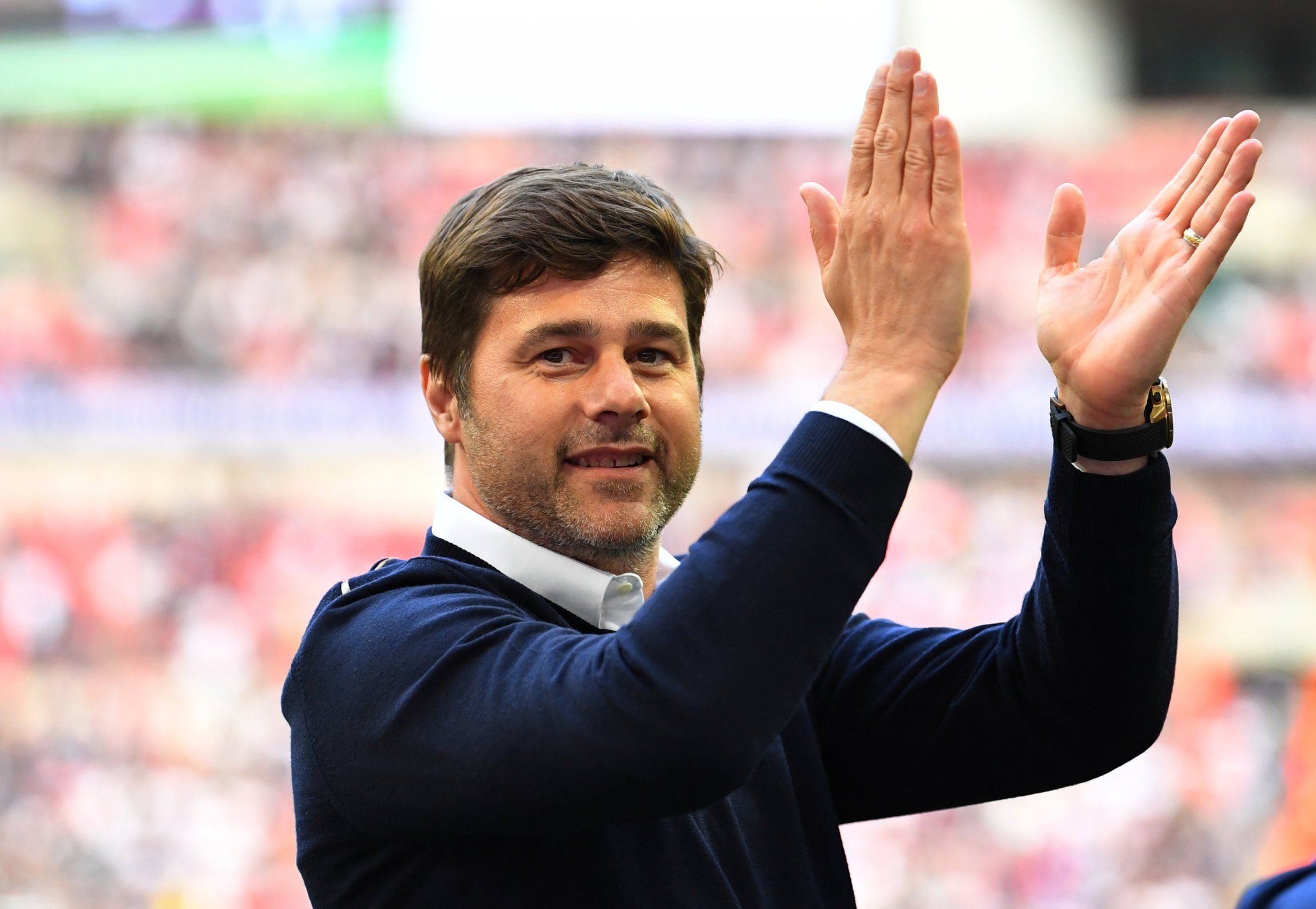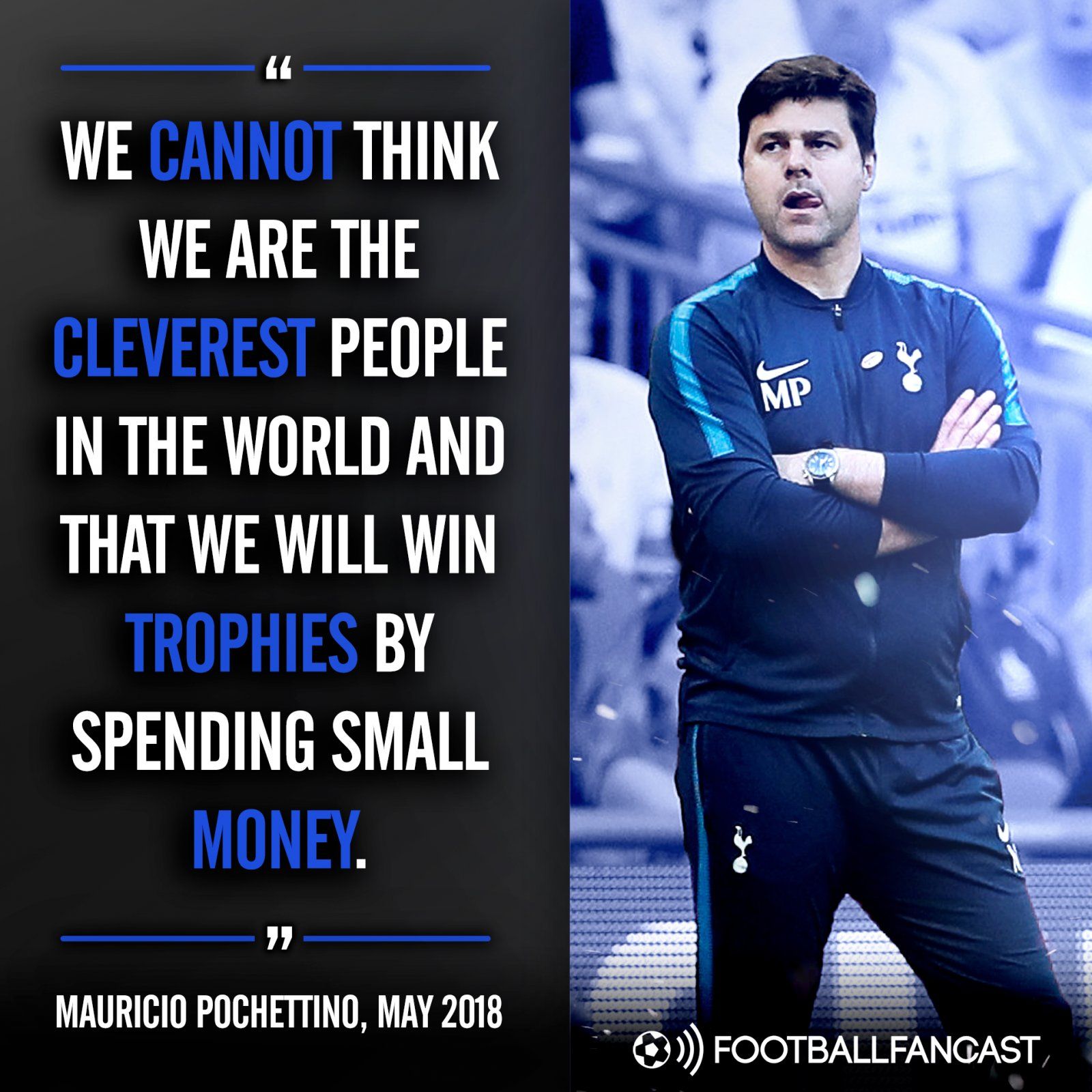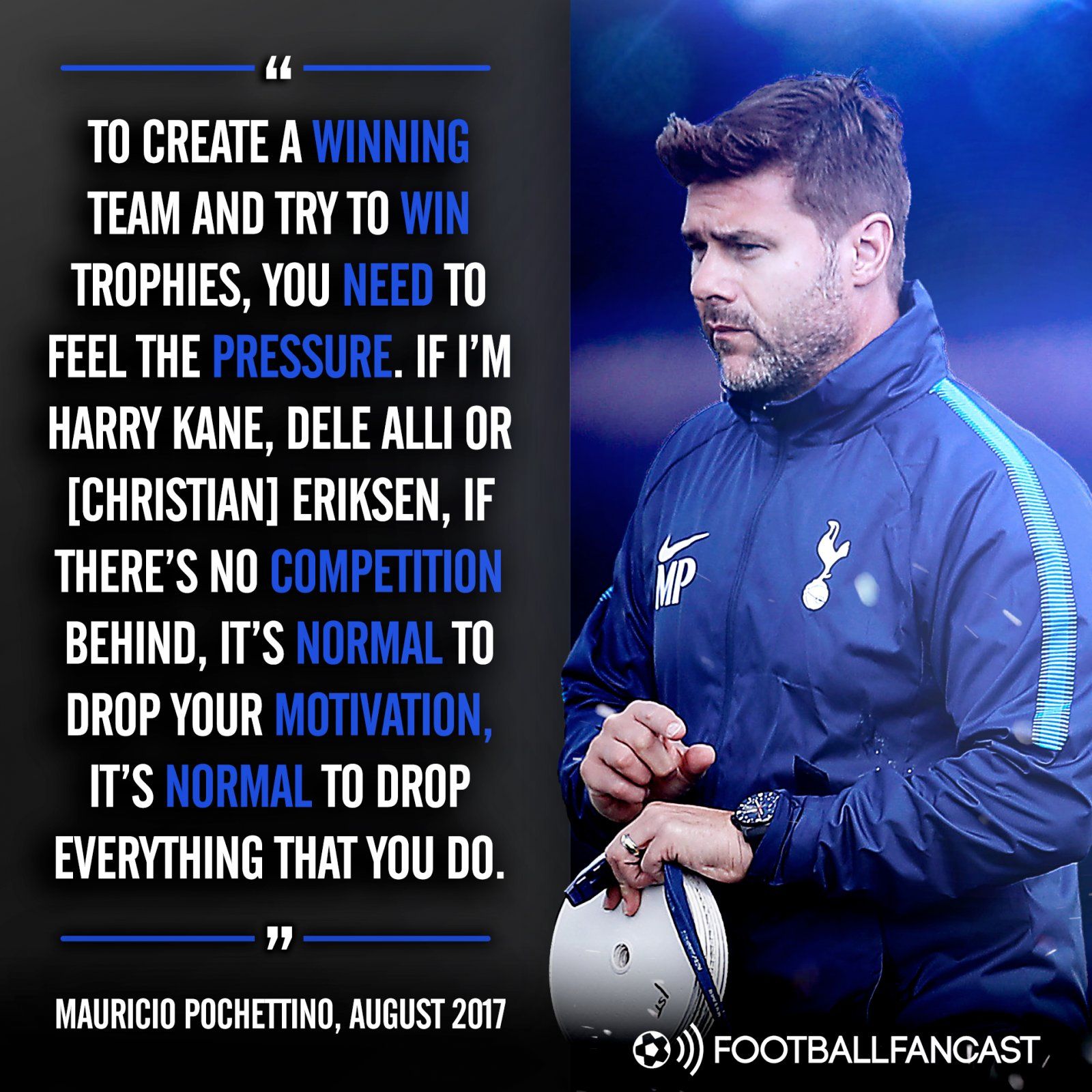With less than 24 hours to go until the summer transfer deadline, and with the latest reports revealing the only player Tottenham have been consistently linked with this summer, Jack Grealish, won't leave Aston Villa, Mauricio Pochettino has every right to feel betrayed by Daniel Levy.
After all, it was only four months ago, back at the start of the summer in May, that the manager who has taken the north London club from perennial fifth place to three years of consecutive Champions League qualification and the cusp of two Premier League titles laid it all on the line.
Openly and honestly, albeit no doubt a political move to put pressure on his paymasters too, Pochettino declared that Tottenham must make changes to match his ambitions, to take the club to the next level from daring to win silverware to actually doing it.
A big part of that was, of course, transfers. It would be wrong to insinuate Tottenham haven't backed Pochettino financially; from his eight full transfer windows as Spurs boss, the Argentine has spent the best part of £300million. Not quite in line with the rest of the big six and certainly not enough to simply spend Tottenham's way past their divisional rivals, but not poles apart from their levels of spending either.
The real problem during Pochettino's reign has been the delivery of new signings and particularly the timing of their arrivals. From Pochettino's four summers in charge, just nine of 21 signings have moved to north London prior to the first game of the Premier League season, and only seven have arrived before the start of August.
That's more than half of Pochettino's summer signings not getting anything close to a full pre-season under the Argentine, and the problem has only exacerbated the more successful he's become. In summer 2016, just two signings were made before the Premier League's opening weekend, and in summer 2017 none were made at all. See only Tottenham's slow starts to their two serious title bids, and how close they've actually finished to the top of the table, to realise how detrimental this approach has been. A few early wins rather than draws could have made all the difference.
It looks set to be the same case this time around, but the ramifications are now far more severe. Should Tottenham fail to bring in any players within the next day, Pochettino will be left with exactly the same squad as last season and although most of Spurs' players are young enough to naturally improve anyway - particularly their core of Harry Kane, Dele Alli and Christian Eriksen - it still leaves the north Londoners standing still rather than gaining ground on the teams who finished above them in 2017/18, having failed to address some key deficiencies of depth within the squad.
And that appears to be due to Levy's insistence on getting the best value possible on players leaving the club. It's no great secret that contract situations have put Danny Rose, Toby Alderweireld and Mousa Dembele in the shop window, while recent reports claim Victor Wanyama and Fernando Llorente are up for sale as well.
Perhaps Levy assumed the early close of the Premier League window would have obliged some of Tottenham's divisional rivals to put big fees on the table by now, but if that's the case then potential suitors have wisely called the chairman's bluff. Rather than seeing the luxury of European clubs being able to sign players for an extra three weeks until the end of August as a threat they must avoid, the pool of potential buyers within England has gravely diminished - it seems nobody's actually too bothered if Levy ends up selling Alderweireld, Rose or Dembele to foreign teams instead.
After all, while they'll miss out on signing talented individuals, it's a much lesser loss than Tottenham's in the grand scheme of things. For starters, Alderweireld, Rose and Dembele will be moved out of the Premier League landscape completely, so nobody in the top flight is gaining any real advantage from their transfers. More significantly, Tottenham will probably have to settle for lesser fees and won't be able to immediately replace them, so it actually weakens the north Londoners to sell players after the English deadline, which - in terms of next season's table - could prove almost as valuable as signing players directly from them.
But Levy views the world through the lens of the bottom line, which is no doubt what Pochettino was alluding to back in May. Compare that approach to how some of Tottenham's key rivals have acted this summer; Liverpool have been meticulous and direct in their recruitment, bringing in the players they want regardless of cost or how long they have to wait, Arsenal began the Unai Emery era by making all of their signings before the first fortnight of July and while Manchester City have only made a single addition, it was one of just two players Pep Guardiola really wanted to acquire - the other being now-Chelsea's Jorginho. They haven't bothered shopping around for a less appealing alternative.
[brid autoplay="true" video="255896" player="12034" title="Watch Tottenham's opening fixtures for the 201819 Premier League season"]
In contrast, Levy's still doing exactly what Pochettino surely didn't want - maintaining a transfer model that hinders his ability to truly prepare the squad for the coming season, that depends on outgoings to make incomings, that cares more about Tottenham's financial than footballing concerns. While we aren't privy to exactly what was said between Pochettino and Levy to convince him to sign a new deal and stay in north London, it's practically impossible to imagine this is what the Tottenham boss hoped for when he put pen to paper.
Tottenham may be moving into a new stadium, Pochettino may have agreed a new contract, but the club's new era is already feeling like the same-old, same-old. The emotional and psychological consequences, putting something of a dark cloud over the club ahead of their first Premier League clash of the new season, could prove to be almost as detrimental as the lack of summer business itself.




